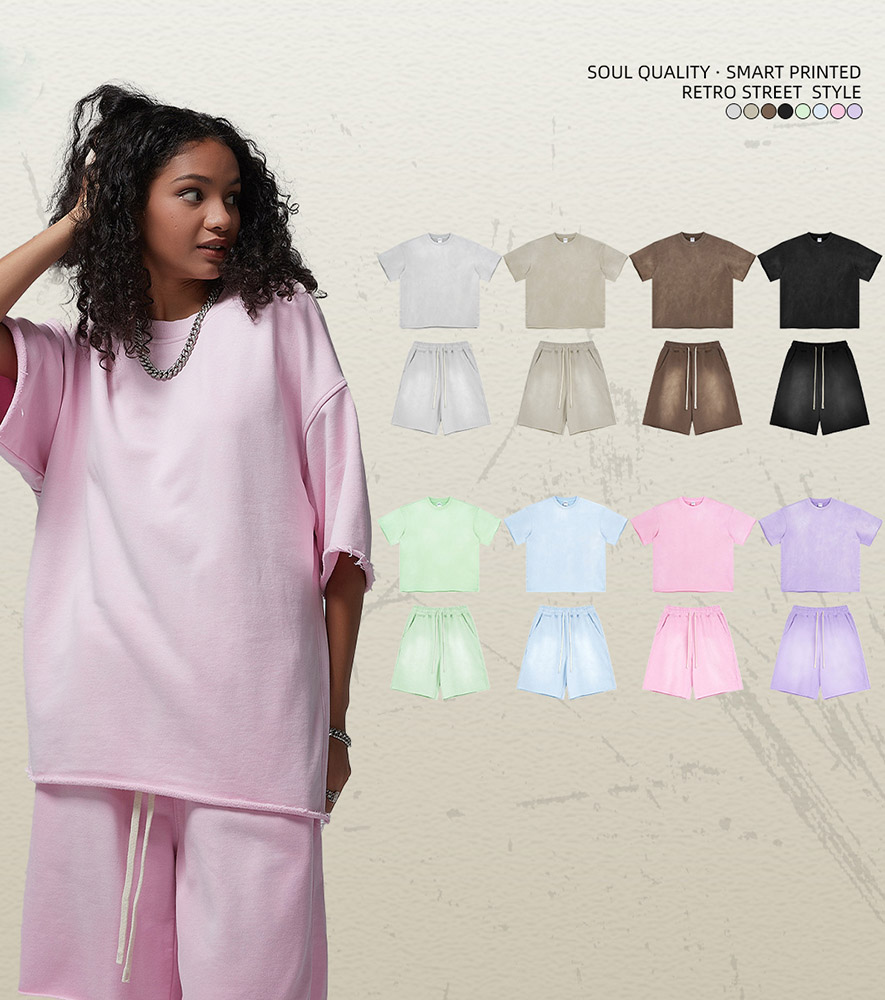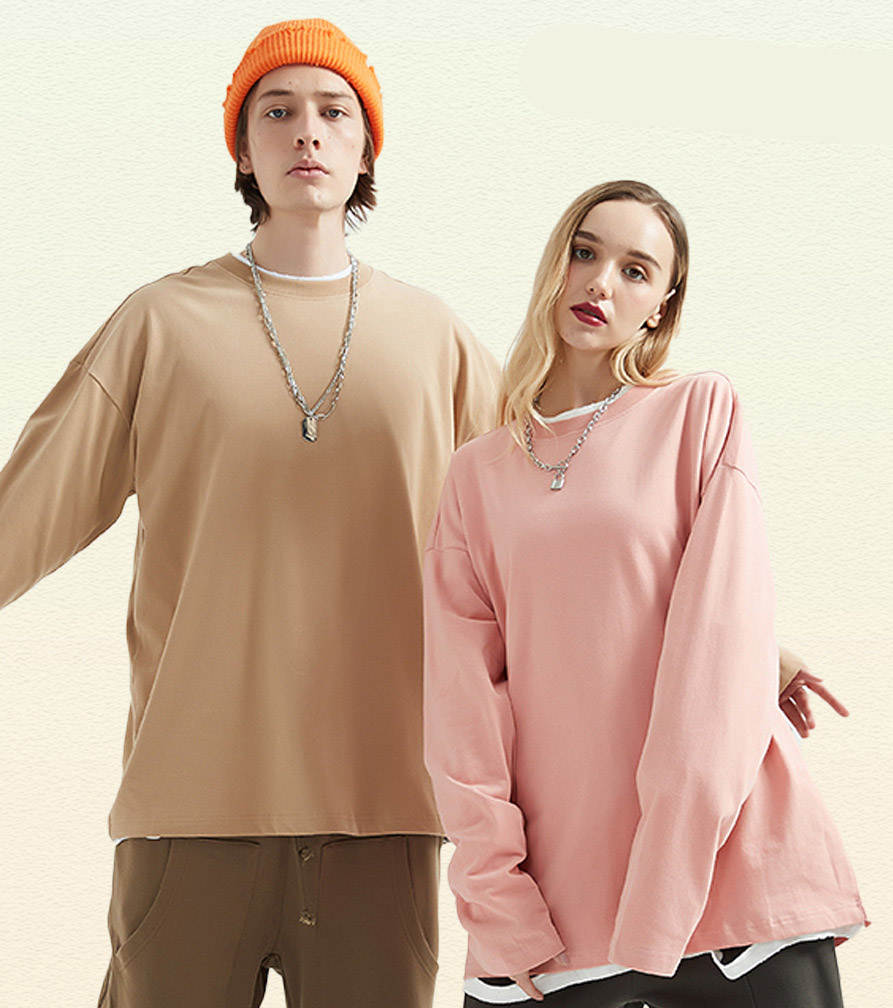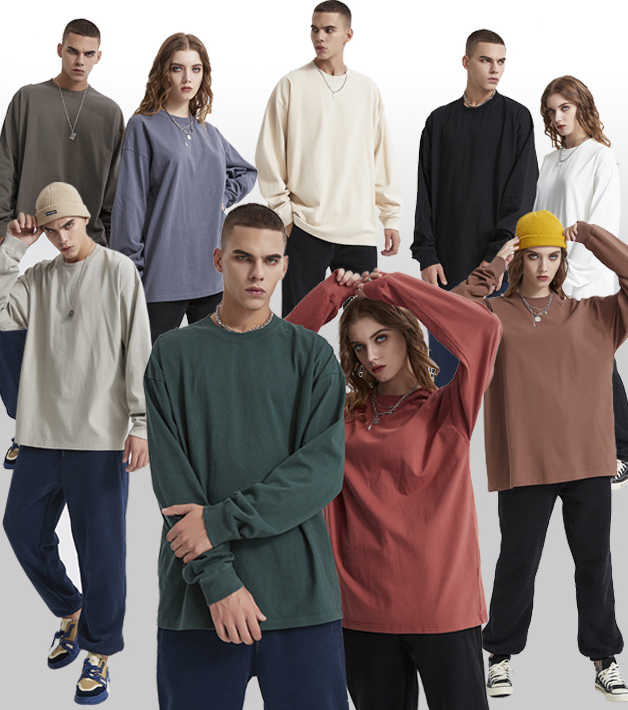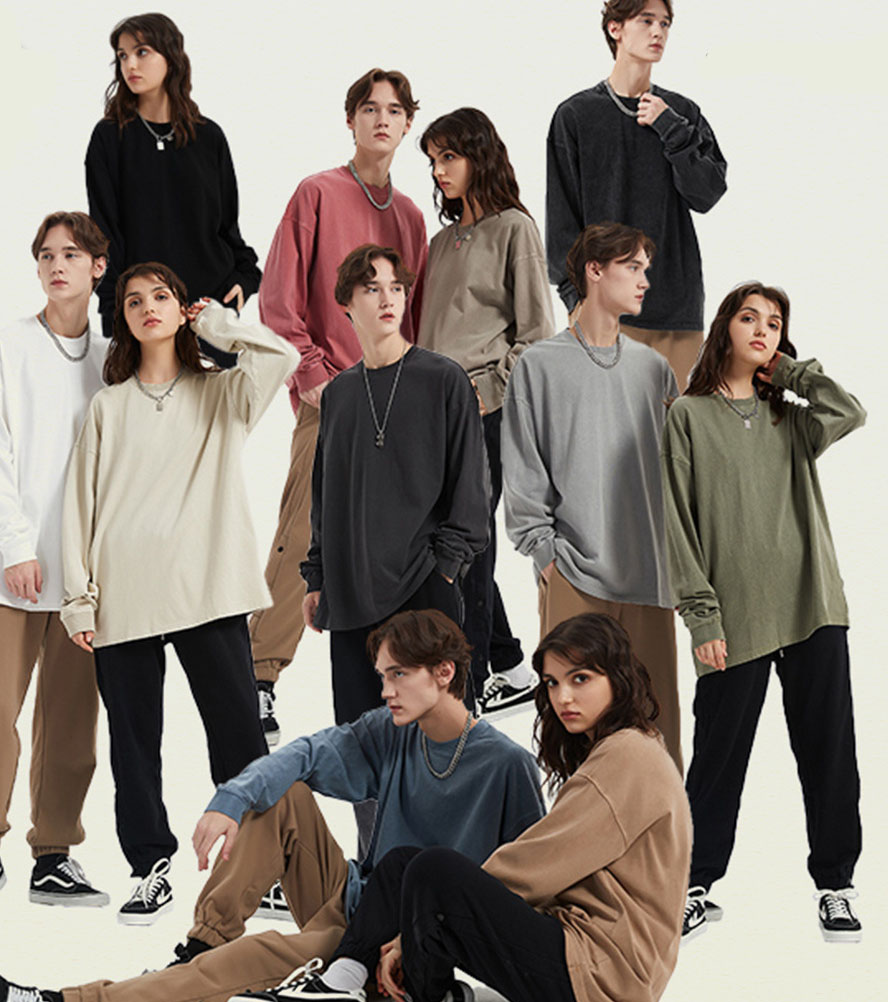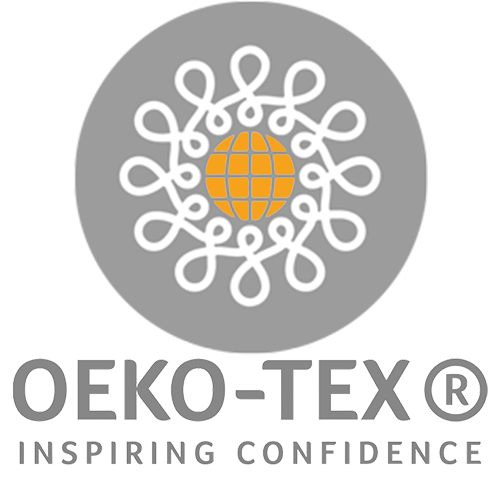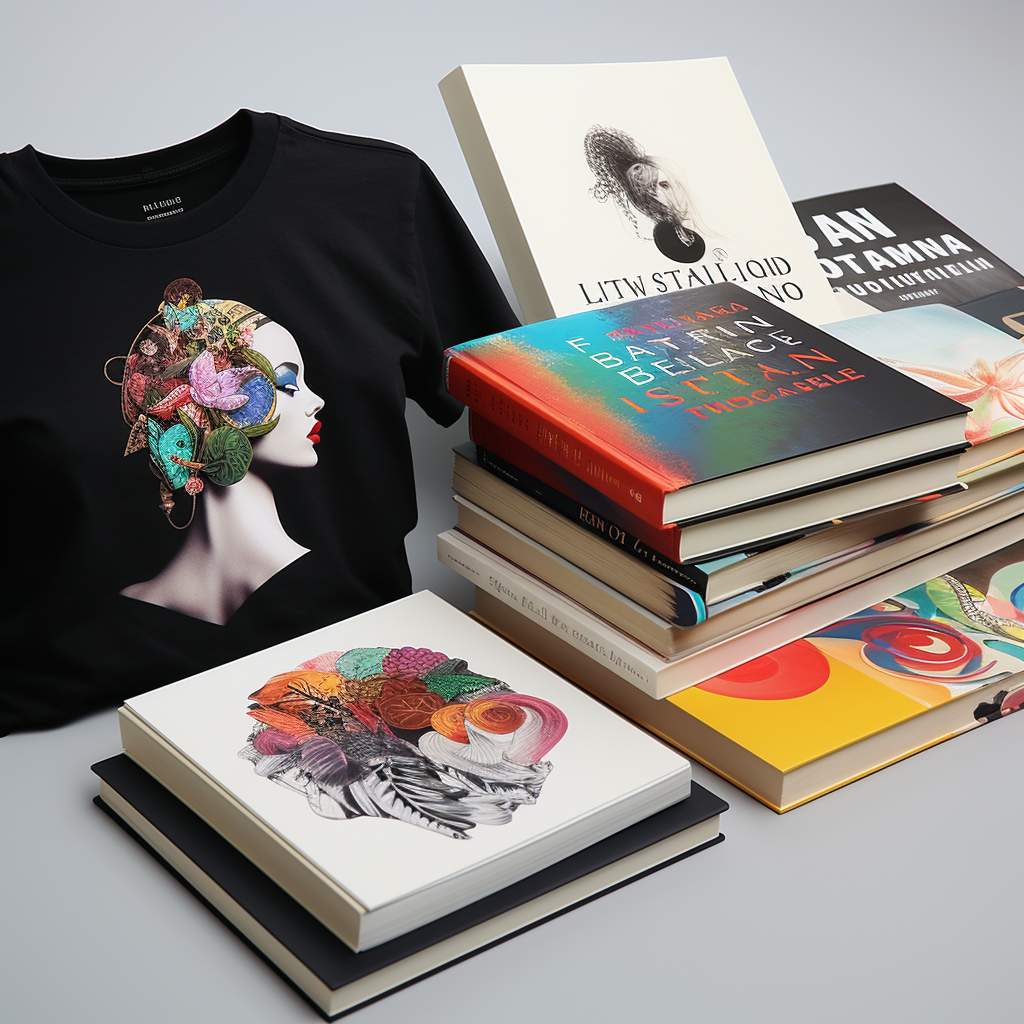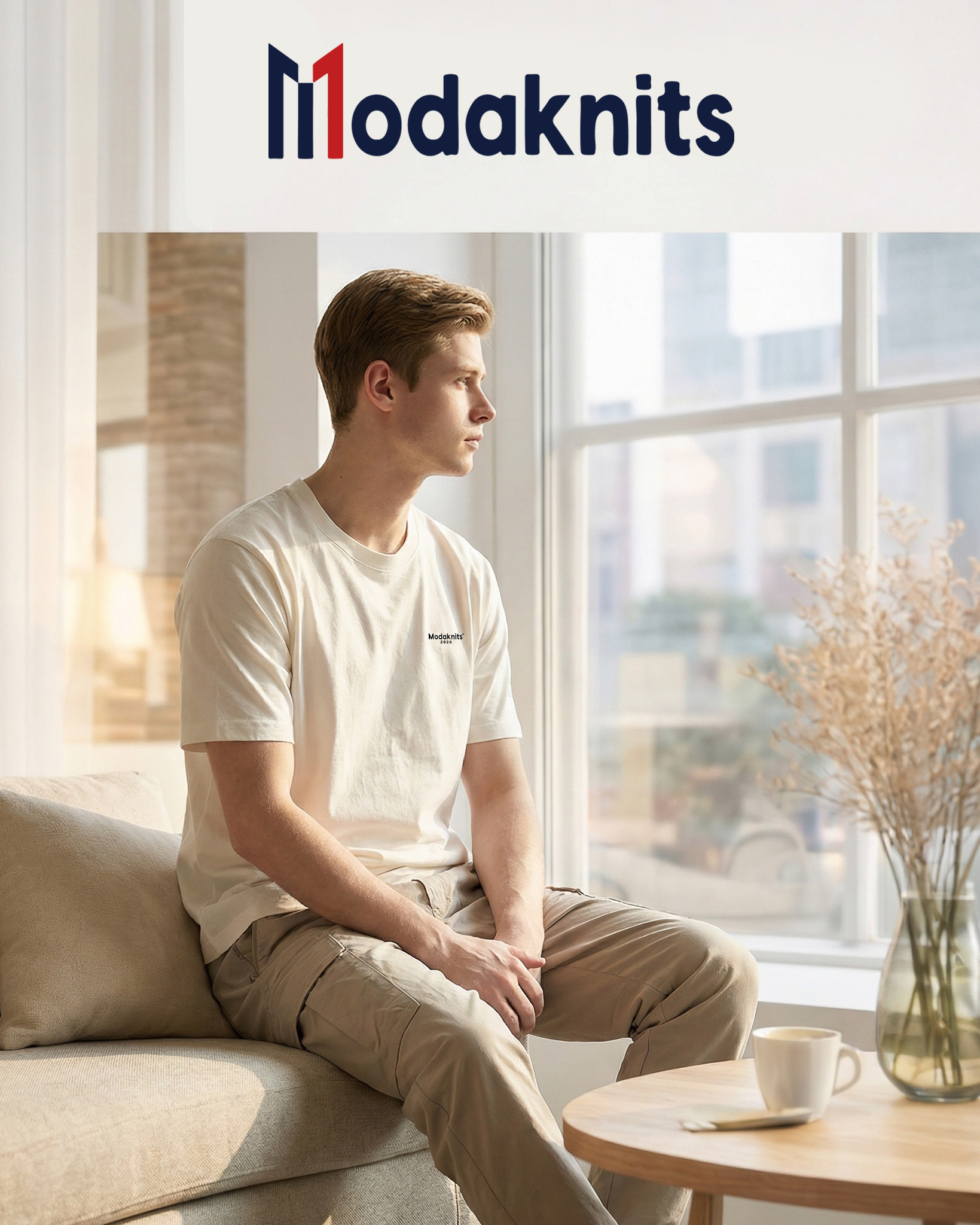Many people assume custom clothing1 is only for the wealthy. But is that really true? With the rise of accessible manufacturing and flexible design options, the price gap between custom and ready-made has started to shrink.
Custom clothing can be more expensive upfront, but the price reflects superior fit, material quality, and durability—making it a smart long-term investment.
I used to buy fast fashion for speed and savings. But after replacing the same hoodie three times in one season, I realized what “cheap” really cost me. That moment pushed me to explore custom—and it changed how I value clothes.
What factors influence the cost of custom clothing?
Ever wondered why two custom T-shirts can have completely different price tags? The answer lies in what goes into them.
The final cost of custom clothing depends on fabric type, design complexity, labor hours, and order size—each of these factors adds up.
 Pattern cutting session
Pattern cutting session
How do fabric quality2 and material choices affect custom clothing prices?
Materials make up the base cost. Better fabric = higher cost.
- Natural fibers like organic cotton, bamboo, and merino wool cost more than synthetics.
- Functional fabrics like moisture-wicking blends or sustainable textiles (e.g., TENCEL™) also drive up prices.
- Fabric origin matters. Japanese and Italian fabrics are often 2–3x more expensive than bulk Chinese alternatives.
💡 Pro Tip: Ask suppliers about GSM (grams per square meter) to evaluate fabric thickness and value for money.
Why does tailoring and craftsmanship increase the cost of custom garments?
Custom clothing isn’t mass-produced. It’s built piece by piece.
- Skilled labor requires time. Pattern making, cutting, and sewing involve meticulous hands-on work.
- Custom fitting takes more time than standard sizing. Multiple revisions may be needed for a perfect silhouette.
- Advanced finishes (e.g., flatlock seams, embroidery, or hidden pockets) increase complexity and time.
The cost isn’t just about the shirt—it’s about the hands that shaped it.
How does custom clothing compare to off-the-rack pricing?
“Why spend $60 on a custom tee when a $15 one from the mall looks similar?” It’s a fair question.
Off-the-rack clothes are cheaper upfront, but they’re made for the masses—not for you. Custom clothing justifies its price through quality, fit, and personalization.
Is the price difference between custom and ready-made clothing justified?
Absolutely—if you value fit, comfort, and longevity.
- Off-the-rack sizing is generalized (S, M, L), while custom uses real body measurements.
- Ready-made items often cut corners: lower thread count, basic stitching, and cheaper trims.
- Mass production means more risk of defects, poor QC, or inconsistent sizing.
You’re not just paying for the garment—you’re paying for how well it works for you.
Can custom clothing offer better long-term value despite the higher upfront cost?
Yes. Here’s the math: A $20 shirt that lasts 10 washes = $2 per wear. A $60 custom shirt lasting 60+ washes = $1 per wear.
- Custom clothing needs fewer replacements.
- It’s less likely to shrink, fade, or fall apart after a season.
- You wear it more because it fits better—maximizing value per wear.
Over time, quality beats quantity.
Are there budget-friendly options for getting custom clothing?
Not all custom pieces come with luxury price tags. With smart choices, you can enjoy the benefits of custom without breaking the bank.

Affordable custom clothing is possible by simplifying design, choosing local vendors, or adjusting materials—without sacrificing fit.
How can I get affordable custom clothing without compromising on quality?
Here’s how to balance cost and quality:
- Limit color count: Fewer inks in screen printing = lower setup cost.
- Choose core styles: Avoid complicated silhouettes that increase pattern costs.
- Batch orders: The larger your order, the lower the price per unit.
- Use stock fabrics: Custom-dyed materials are great, but pricier.
Don’t be afraid to communicate your budget early—many factories can suggest cost-saving tweaks.
What types of custom clothing are typically less expensive?
Certain categories are naturally more affordable.
| Category | Customization Cost Level | Why It’s Affordable |
|---|---|---|
| T-Shirts | Low | Simple cuts, fast production |
| Hoodies/Sweats | Moderate | Fewer size-fitting variables |
| Shorts/Activewear | Low to Moderate | Less fabric, fewer trims |
| Dresses/Suits | High | More tailoring, complex cuts |
Start small with essentials—then build out your wardrobe gradually.
What are the benefits of investing in custom clothing?
It’s not just about price. Custom clothing can change how you feel in your clothes—and how others see you.
Custom clothing offers personalized fit, long-lasting durability3, and the ability to express your unique style without compromise.
Does custom clothing fit better and last longer than mass-produced items?
Yes—by design.
- Measurements are taken specifically for you.
- Fit issues like tight shoulders or gaping waistbands are eliminated.
- Construction is done with care—not a rushed production line.
With proper care, a good custom piece can last 2–3x longer than fast fashion.
How can custom clothing reflect personal style more effectively?
Custom means you have the final say.
- Choose necklines, sleeves, fabric textures, trims—even thread colors.
- Collaborate with a designer or upload your own artwork.
- Stand out with details mass brands overlook—like contrast stitching or private label tags.
Your clothing becomes an extension of your identity—not just something you wear.
When is it worth spending more on custom clothing?
Custom isn’t always necessary—but in some cases, it’s a game-changer.
It’s worth investing in custom clothing when you need superior fit, brand representation, or long-lasting garments for special roles or occasions.

Should I consider custom clothing for special occasions or daily wear?
It depends on your goals.
- Special occasions: Weddings, launches, uniforms—all benefit from unique, polished looks.
- Daily wear: If you wear it often (e.g. favorite hoodie or work uniform), it makes sense to go custom.
Look at wear frequency × visibility = worth investing in.
What professions or lifestyles benefit most from custom wardrobes?
Custom isn’t just for fashionistas—it’s practical for anyone needing consistent image and comfort.
| Role/Profession | Benefit of Custom Clothing |
|---|---|
| Designers/Entrepreneurs | Reinforce brand identity |
| Speakers/Executives | Elevated presence on stage/in meetings |
| Performers/Artists | Unique styling and movement-friendly garments |
| Fitness Coaches | Perfect-fitting activewear that boosts confidence |
| Hospitality Workers | Durable, polished uniforms with consistent fit |
In short: If your clothing speaks for you—make sure it says the right thing.
Conclusion
Custom clothing can cost more upfront, but the return is undeniable. Better fit, longer life, and authentic expression make it worth every penny—especially when you know how to spend smart.
-
Explore the advantages of custom clothing, including personalized fit and unique style, to see if it’s right for you. ↩
-
Understanding the impact of fabric quality on clothing prices can help you make informed purchasing decisions. ↩
-
Discover the factors that enhance the durability of custom clothing, ensuring your investment lasts longer. ↩




